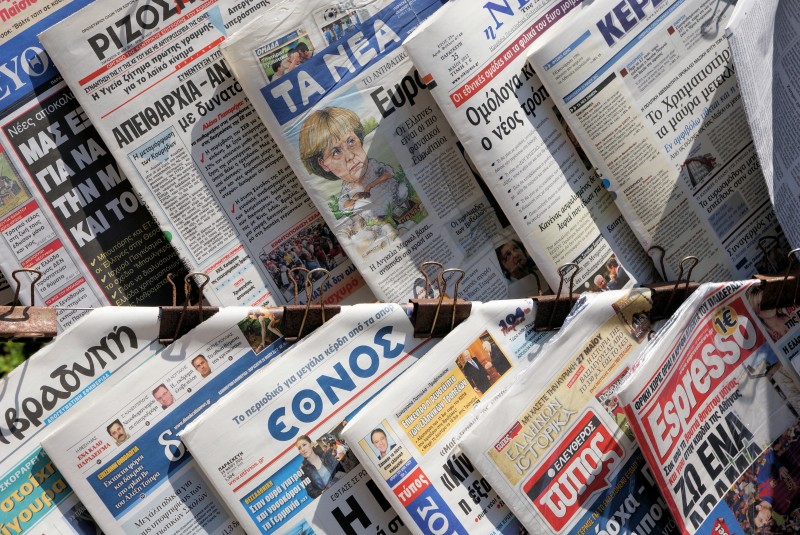Reported by
Greece is facing a severe media freedom crisis driven by government surveillance, political interference, and retaliatory lawsuits, according to a new report by Human Rights Watch (HRW).
The 101-page publication, titled “From Bad to Worse: The Deterioration of Media Freedom in Greece,” warns that the climate for independent journalism has grown increasingly hostile since the New Democracy party came to power in 2019.
HRW interviewed 26 journalists working across print, broadcast, digital, and freelance media. Many spoke anonymously, citing fears of retaliation. They described routine harassment, pressure from government officials, and constant surveillance that led to widespread self-censorship.
Seven journalists reported being targeted by surveillance tactics, including wiretapping and use of commercial spyware such as Predator. In one case, reporter Stavros Malichudis discovered in 2021 that Greece’s intelligence service had been monitoring him.
“For many months I was in fear… It took me a lot of time to disengage from what happened and start doing reporting again,” Malichudis told HRW.
The report also highlights how government funds have been used to influence coverage. Public broadcasters, including ERT and the Athens-Macedonian News Agency, have faced direct editorial pressure, while state advertising budgets were disproportionately funneled to pro-government outlets.
Legal intimidation remains a key strategy. Journalists—particularly those investigating the 2022 spyware scandal—have been hit by SLAPPs (Strategic Lawsuits Against Public Participation). Among the most active litigants is Grigoris Dimitriadis, Prime Minister Kyriakos Mitsotakis’ nephew and a former government official, who has filed multiple defamation suits against reporters covering the case.
“What you say on TV is so controlled that you have no freedom,” said one veteran TV journalist. “Everything is controlled. What you will say, how you will say it.”
Despite recent reforms, Greek defamation laws still include criminal penalties for “insult” and “slanderous defamation,” providing authorities with legal tools to suppress dissent. Government officials have also cited “national security” to restrict access to information about surveillance practices and state advertising allocations.
Greece continues to rank among the lowest EU countries in the Reporters Without Borders World Press Freedom Index. In February 2024, the European Parliament passed a resolution expressing serious concerns about media suppression and democratic backsliding in Greece. The Greek government, however, has largely dismissed the criticism.
Prime Minister Mitsotakis responded to the resolution by insisting that “Greece’s rule of law is stronger than ever,” and accused critics of slander.
HRW said it shared the report's findings with Greek authorities and media outlets. While some officials cited minor reforms, the overall response defended the current situation and denied systemic problems.
The organization urged the EU Commission to closely monitor the situation and ensure that Greece upholds its commitments under the EU Charter of Fundamental Rights and its own constitution.






